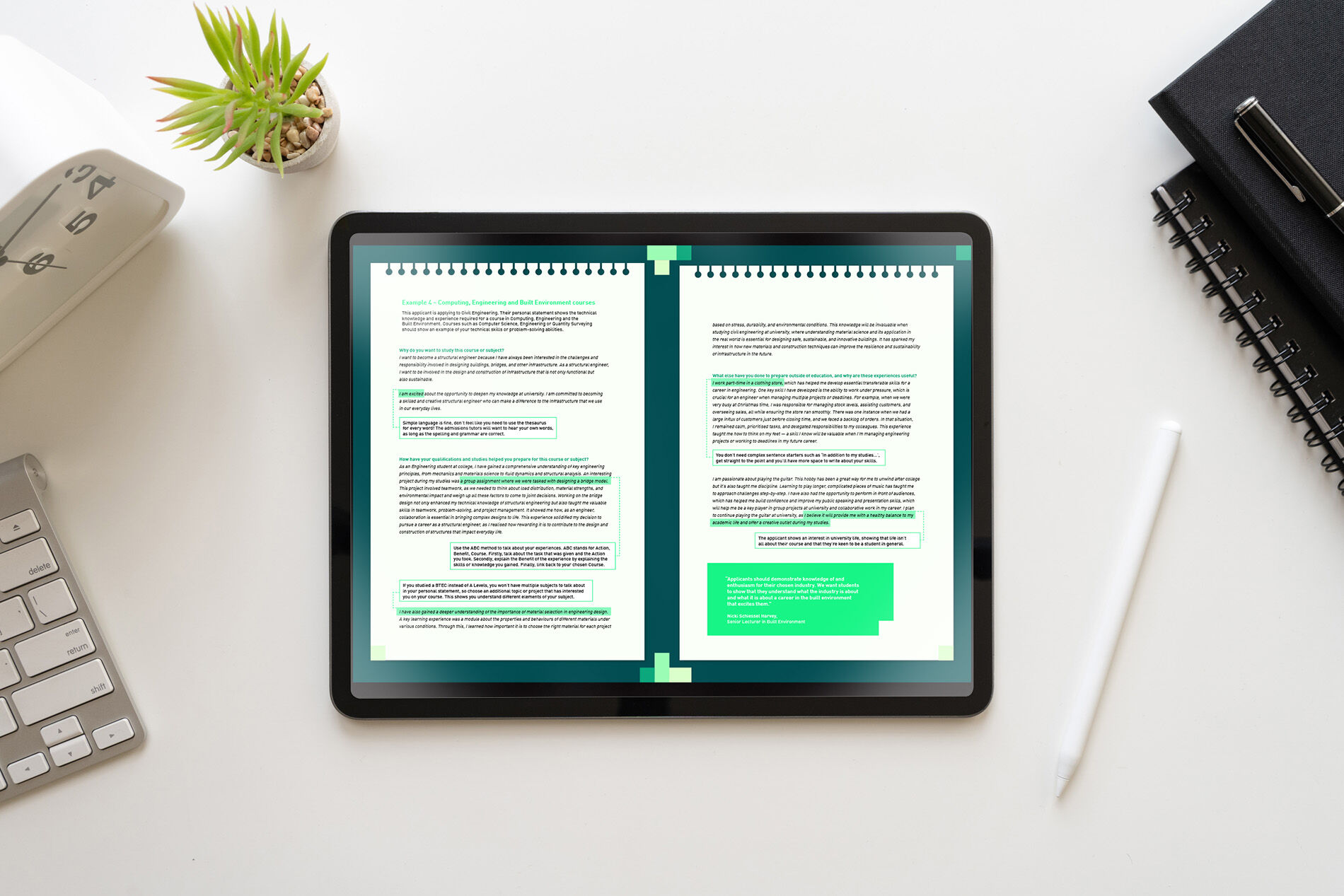Writing your personal statement might seem scary, but don’t worry, it’s just a chance to show why you’re a great fit for your course. There are three main questions to answer, and we’ll help you break them down so you can ace each one.
Question 1: Why do you want to study this course or subject?
Here’s where you explain what makes this course exciting to you.
💡 Think about:
- Your motivations for studying this course(s)
- Your knowledge of this subject area and personal interests
- Your future plans and why this is a good fit for you
Top tip: Whether you want to be a lawyer or the next Steven Spielberg, think about what you want to do in the future. It may be that the course is directly relevant to your intended career, or perhaps you have already studied the subject and found it particularly enjoyable. If the subject is completely new for you, highlight what led you to develop an interest in the subject. This could be a book, extra-curricular activity or key moment in your life that inspired you to start researching this subject.
Question 2: How have your qualifications and studies helped you prepare for this course or subject?
This is your chance to show what you’ve learned at school or college that links to your course.
💡 You could include:
- The skills and knowledge you’ve gained from education or training and how this will help you succeed in your chosen subject
- What relevant or transferable skills you have that make you a great candidate
- Any additional educational achievements, such as being head boy or girl
Top tip: You don’t need to mention your grades here. Universities will already see those as part of your UCAS application. Instead, highlight times when you really got stuck into a project or discovered something that inspired you.
Question 3: What else have you done to prepare outside of education, and why are these experiences useful?
Not everything you’ve learned comes from the classroom. Life experience counts too!
💡 You might want to talk about:
- Work experience, employment, or volunteering and how they’ve helped you develop the skills needed for your chosen course or future career
- Hobbies and any extracurricular or outreach activities that have taught you transferable skills you can use on your course
- Achievements outside of school or college
Some examples could be DofE, your part-time job or being part of a sports team.
Top tip: Your work experience, part-time job or hobby doesn’t have to be related to your chosen course. You just need to show how this experience has provided you with transferable skills that you will need at university.
Download your free personal statement guide
Be inspired by real personal statement examples from our students.
How long should my personal statement be?
Each response will have a minimum character count of 350 characters including spaces. You have a 4000-character count overall, including spaces. You don't have to use the same number of characters for each question, as long as you write a minimum of 350 characters. You can write more for one question than you do for the others.
Final Advice
Be honest, be yourself, and don’t stress about trying to sound “perfect.” Universities want to get to know the real you.






